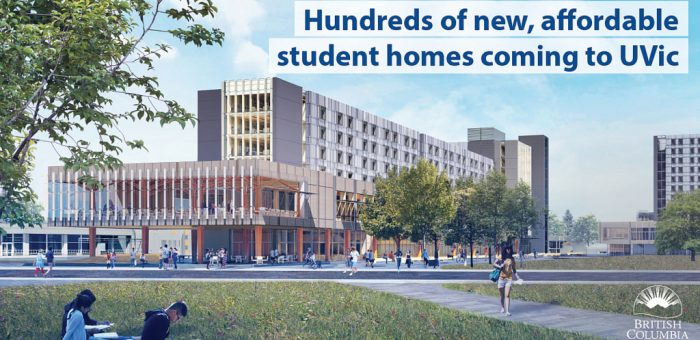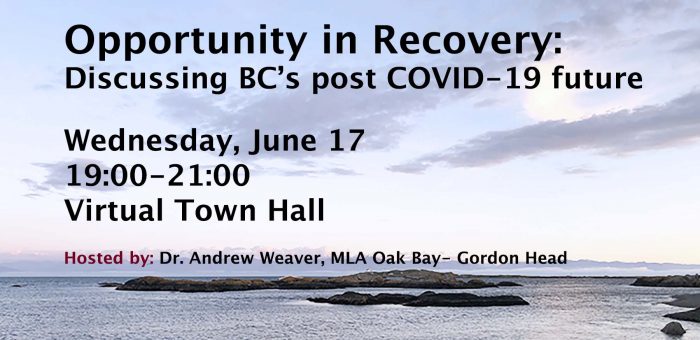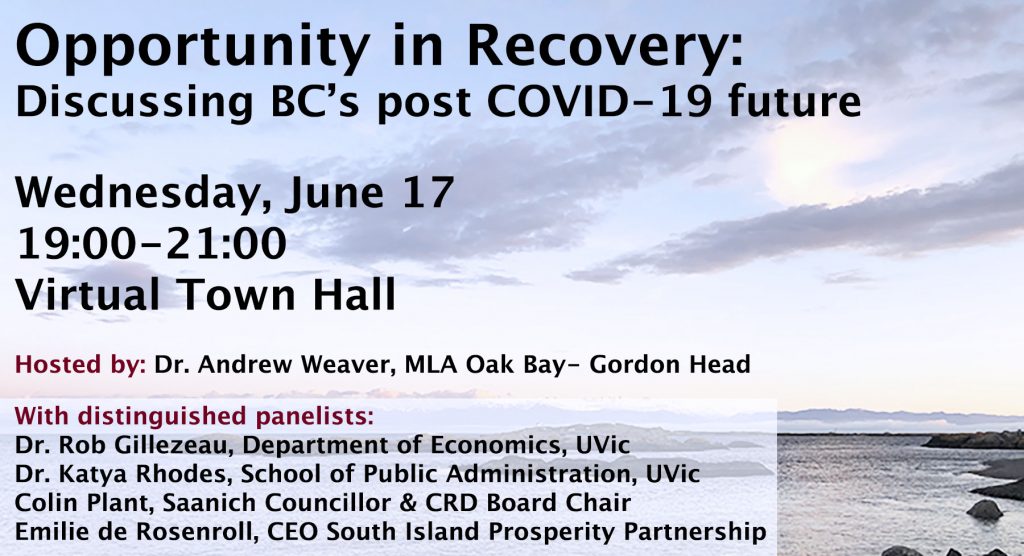It’s election season here in the CRD and true to form, political rhetoric is escalating. In the City of Victoria, for example, there is an ongoing divisive debate over the so-called Missing Middle Housing Initiative. Younger generations affected by the rental crisis and the lack of affordable housing are being pitted against homeowners (often assumed to be from an older generation).
In my view, the debate is not actually focused on the key questions that need to be answered:
- Will the proposed initiative address the issue of affordability? In other words, is the proposed solution meeting a desired outcome?
- Is the initiative being advanced in a way that brings people with you in the process?
- What is the role of council and why is this new initiative required?
Compelling arguments are being advanced in support of both sides of the first question and some believe that this is where the public controversy arises. In my view, it isn’t.
The term “missing middle housing”, was first coined by Daniel Parolek in 2010 and expanded upon in his book Missing middle housing : Thinking big and building small to respond to today’s housing crisis, published in 2020. It’s defined as “house-scale buildings with multiple units in walkable neighbourhoods”, and it was designed to address sprawling US car-dependent communities.
Many I have spoken with have long supported the notion of missing middle housing, without knowing the slogan. In fact, successive Victoria councils have a longstanding track record of allowing for, and even promoting, such developments. One only need drive along Shelbourne Street to find myriad townhouse developments built in recent years, or travel along Rockland Avenue to witness stately mansions from the early 1900s that have been preserved and transformed into multi-family units.
Moving to question 2, I believe the answer is demonstrably no. In general, any policy consultation process that ends up pitting one group against another is destined to divide rather than unite our community. And that is what we are seeing in the missing middle debate in my view.
Such societal polarization is often reinforced by some in the so-called progressive movement who ironically don’t realize that their communication/activism tactics are quite similar to those employed by elements of the alt right. These include being intolerant of opposing views, making assertions – not grounded in evidence – to justify a cause, attacking people who disagree with them on social media, and civil disobedience to hopefully increase public awareness to their cause. Groups that are intolerant of the views of others, whether they be on the left or the right, ultimately just reinforce British Columbia’s longstanding reputation for societal polarization and pendulum politics.
Pendulum politics occurs when an angry electorate mobilizes, often egged on by an opposition party/individual or parties/individuals, to unseat those holding elected positions. Consequently, local, provincial and federal governments get summarily turfed out in elections and the party or individual(s) on the other side of the political spectrum form government or the majority on council. More often than not, the so-called baby is thrown out with the bathwater as the new government or council begins to undo the work of the previous government or council to fulfill their election campaign promises.
One solution to ongoing pendulum politics is to put in place a form of proportional representation like what already exists in more than 90 countries, and the majority of western democracies, worldwide. At the council level, this translates to a ward system that ensures unique neighbourhoods within a municipality are properly represented at the council table. Regional District electoral systems already operate on a ward system. For example, the Cowichan Valley Regional District has representation from 9 different electoral areas; the Nanaimo Regional District has representation from 7 different electoral areas.
But we have neither of these systems in place, and so we must work within the system that we have. And this brings me to question 3.
Local governments are created under British Columbia’s Local Government Act and municipalities, such as Victoria or Saanich, are empowered by British Columbia’s Community Charter which provides:
- “a legal framework for the powers, duties and functions that are necessary to fulfill their purposes,
- the authority and discretion to address existing and future community needs, and
- the flexibility to determine the public interest of their communities and to respond to the different needs and changing circumstances of their communities.”
Obviously, zoning is one of the most important functions of an elected council. The biggest issue with the missing middle initiative is that council are proposing to pass a highly divisive, one-time, city-wide zoning change a few days before the next civic election. Associated with the initiative is the delegation of development approval to staff. In essence, Mayor and Council would be able to deflect any political accountability to their staff.
Mayors and their councils are elected to represent and meet the needs of those residing within each of our unique and diverse neighbourhoods. They are elected to listen to all residents, not just their political supporters, as they propose and approve policies that unite, rather than divide, our communities.
In my view council have chosen to abdicate their public, and hopefully transparent, decision-making process to staff who are not accountable to the electorate. In addition, it makes little sense for Victoria, with a population of only 85,792 (2016 census), the seventh most densely populated (4,406 people per square kilometre — 2016 census) municipality in Canada, to pretend they can go it alone to solve the affordability issue in our region. What is needed is a coordinated regional housing strategy.
It strikes me that what we are witnessing is divisive politics instead of good governance, especially since such an important issue is being debated just over a month before the next local government elections with virtually all the present council having declared that they are not seeking re-election. Who will be held accountable for a decision on the Missing Middle Initiative? Nobody. The truth is, council have already been implementing and could further expand upon, the issue of missing middle housing if good governance was placed ahead of divisive political posturing.
Another example, which serves to illustrate just how dysfunctional the recent decision-making process on Victoria council is concerns the recent pronouncement that all new construction from 2025 must be “zero carbon” producers by 2025. This means that the era of oil, gas or propane heating is over in new construction in Victoria. As someone who has been speaking out publicly on the need to reduce GHG emissions since the early 1990s, obviously I support this policy. In fact, CleanBC, British Columbia’s climate action plan, already requires the same throughout BC by 2030. But once more, the way Victoria council brought this forward is almost a textbook example of what not to do to advance climate policy. While other jurisdictions are exploring similar proposals for early adoption, Victoria decided to go it alone amid rising affordability, inflation concerns and a divisive debate on the Missing Middle Housing Initiative.
How processes like this play out is predictable. A new Mayor and Council recognize that the previous Mayor and Council had lost the confidence of the electorate. As evidence for this one only need read the results of the recent governance survey where 81% of respondents stated that they were dissatisfied or very dissatisfied with Victoria’s governance. Despite losing the confidence of the electorate, council still decided to debate or pass controversial motions at the 11th hour thereby blindsiding many in our community because the important groundwork to bring people with you was not done in advance. And so pendulum politics kicks in and a new Mayor and Council start to undo the work of the previous Mayor and Council in order to repair the divides within our community.
We’ve seen this happen before in British Columbia. When Premier Campbell brought in the HST without bringing the electorate along with him it spelled the end of his leadership. Now even uttering the words HST is political suicide. This, despite when coupled with a low-income HST rebate program (as was proposed), this form of consumption taxation many would argue represents good fiscal policy.
Earlier in the mid 2000s, on the other hand, Premier Gordon Campbell, his Finance Minister Carole Taylor, and his Environment Minister Barry Penner introduced some of the most innovative climate action policies anywhere. Their flagship policy was British Columbia’s much celebrated revenue neutral carbon pricing. Not only did the general public support Premier Campbell’s climate policies, but they also punished the BC NDP in the 2009 provincial election for not formulating their own climate plan and cynically campaigning behind an “Axe the [carbon] tax” slogan.
As someone was who was born and grew up in the City of Victoria, I am saddened by what I perceive to be the emergence of divisive sociopolitical discourse, activism, and politicking at the expense of inclusive governance. Good governance means governing for all, not just your supporters; it means bringing people together, not pitting one generation against another; and it means listening to the views of all, even people you may not agree with, and doing what you can to address (not dismiss) those concerns.
For those who may have wondered, I will not be seeking a council, mayoral or school board seat in the forthcoming civic election. Admittedly, I very seriously considered seeking a council seat in the District of Saanich, the community in which I have lived since 1992, and a community that exemplifies the notion of good governance.
In my next post I hope to expand upon what I have written here but with a specific focus on climate policy. I’ll build upon my personal experience as someone who has been actively engaged in the areas since the late 1980’s/early 1990’s.













